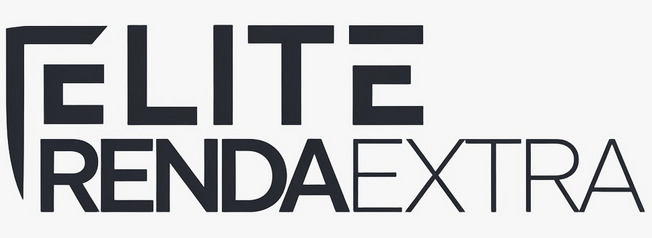Getting a personal loan might seem complex, but understanding the process is key. When you apply, lenders look at your financial history to see if you’re creditworthy. It’s vital to be well-prepared to increase your chances in the competitive loan market.
A good credit score is essential for a positive loan decision. Timely payments and managing your credit well are important. Your payment history makes up 35% of your FICO score. Also, with errors being common in credit reports, it’s wise to check and fix any mistakes to avoid harm to your loan application.
Experts say to keep your credit utilization below 30% to help your score and loan approval chances. Personal loan interest rates vary widely, depending on your credit. They can be from 8% to 36%. Also, personal loan terms can last from two to seven years, so plan your finances well.
For debt-to-income ratios, aim for below 36% to please lenders, though some may accept up to 50%. Understanding this helps you improve your financial standing before applying. Also, getting prequalified with a soft inquiry can help gauge your loan chances without hurting your credit score—a smart move in your loan journey.
Understanding Personal Loans
Looking for extra money means checking out different credit options. Personal loans are one helpful way to do this. It’s key to know what personal loans are all about and how they stand out before you decide.
What Is a Personal Loan?
Personal loans are money you borrow in one big amount and pay back over time. These can be secured or unsecured. Secured personal loans need something valuable, like your house or car, as a backup. This makes them safer for lenders and may give you better terms. Unsecured personal loans, on the other hand, don’t need collateral. This makes them easier to get but often comes with higher interest rates because they’re riskier for lenders.
Types of Personal Loans
There are mainly two kinds of personal loans: secured and unsecured. Your credit, needed amount, and how much risk you can take affect your choice. It’s crucial to compare the best personal loan rates before deciding. Some might go for the lower rates of secured loans despite the risk. Others might prefer unsecured loans for their ease, despite slightly higher rates.
Common Uses for Personal Loans
Personal loans are very flexible. You can use them for many things, like paying off debt, handling sudden medical costs, or fixing up your house. They help you afford big expenses all at once. Most times, lenders don’t mind how you spend the money. But, it’s always smart to think deeply about how this choice fits your financial goals and needs.
If you’re looking to lower your debt payments, pay for crucial healthcare, or update your living space, knowing these basics and finding the best personal loan rates are important steps. They can help you meet your financial dreams more smoothly.
Factors That Affect Loan Approval
Lenders check many parts of your financial life when you ask for a personal loan. This helps them decide if you can get the loan and how good the terms can be. Let’s look at what can make or break your loan approval chances.
Your Credit Score
A credit score above 750 shows you’re good at paying back on time. This can make getting approved easier and might get you a lower interest rate. But, a lower score might make borrowing more expensive or even cause a denial. Keeping your score over 750 helps with getting a personal loan.
Debt-to-Income Ratio
This ratio shows how your monthly income compares to your debts. It’s better if you make a lot more than what you owe each month. A low ratio means you’re seen as less risky, which could get you better loan terms and rates.
Employment Status
Having a stable job means you have steady income. This makes lenders more likely to think you can pay back the loan. They often want people who have worked in the same place for two years or self-employed folks with five years of solid profits. Working for a respected company also helps get better rates and approval.
Loan Amount Requested
The loan amount you ask for matters too. Wanting too much money for your financial situation can worry lenders. But, a smaller amount that fits your income and credit might get approved faster.
Knowing these factors can really help you get a personal loan under better conditions. Here’s a quick table for easy reference:
| Credit Score | Income Requirement | Employment Duration | Age Range |
|---|---|---|---|
| 630+ | ≥ ₹25,000/month | 2+ years at current employer 5+ years self-employed |
23-55 years |
| 750+ (optimal) | Show additional income sources | Stable employment at reputable companies | 21-60 years varies by employment type |
How to Improve Your Credit Score
To get better financial deals like quick personal loans, improving your credit score is key. Knowing what affects your score helps you take the right steps to boost it.
Tips for Increasing Your Score
Using a personal loan calculator can show how a new loan might change your credit usage ratio. It’s vital to keep this ratio under 30% of your total credit limit. Adding different types of credit to your financial mix can also help, since it’s 10% of your FICO score.
Always paying your loans on time can greatly improve your payment history. This matters a lot, since it’s 35% of your FICO score. Choosing credit-builder loans or secure credit cards is smart for building or repairing your score from the ground up.
When to Check Your Credit Report
It’s crucial to check your credit report regularly. Do this at least once a year or before applying for new credit. This helps you spot and fix any errors or fraud.
Most experts recommend getting your reports from all three major bureaus—Equifax, Experian, and TransUnion. Since lenders may check different reports, it’s wise to review them all.
Different activities impact your FICO score in various ways. It’s good to understand these impacts, especially when taking on new debt.
| Activity | Impact on Credit Score | Percentage of Total Credit Score |
|---|---|---|
| Payment History | Most significant positive impact | 35% |
| Credit Utilization Ratio | Negative when high, positive when low | 30% |
| Credit Mix | Positive when diverse | 10% |
| Number of Hard Inquiries | Temporary negative drop | 10% |
| New Debt | Can negatively impact initially | 10% |
By using strategies and a personal loan calculator, you can manage your finances well. This helps maintain or achieve great credit, making it easier to get a quick personal loan when you need it.
Preparing Your Finances for a Personal Loan
Getting a personal loan requires careful financial planning. You might be thinking about refinancing your home, paying off debt, or covering a big expense. Knowing how to prepare your finances is key. It can impact your loan terms and how likely you are to get approved. Planning ahead means budgeting carefully and gathering important financial documents.
Creating a Budget
Making a new budget for a personal loan is important. You can use a loan calculator to figure out your monthly payments. This helps you see how a loan fits with your money situation. If you’re like many with less than $1,000 saved, planning is crucial.
Making a budget with the 50/30/20 rule helps. Spend 50% of your income on needs, 30% on wants, and 20% on debts and savings. This plan helps you keep your finances stable while paying off a new loan.
Gathering Financial Documents
When applying for a personal loan, you need to collect all necessary documents. Lenders look at these closely. You’ll need things like your ID, proof of income, proof of job, and any debt records. These documents show you can handle and pay back the loan. This affects the lender’s decision a lot.
| Type of Document | Description | Why It’s Needed |
|---|---|---|
| Proof of Income | Recent pay stubs, tax returns | To verify stable income for loan repayment |
| Identification | Driver’s license, Passport | For identity verification |
| Employment Verification | Employer contact information, recent job history | To confirm current employment status |
| Existing Debt Records | Credit card statements, existing loan agreements | To assess debt-to-income ratio |
Gathering these documents before you apply can make the process smoother. It also boosts your chances of getting the loan approved.
Choosing the Right Lender
Looking for the best personal loan rates? It’s important to check out different lenders. Each one, from online spots to traditional banks, has its own perks. It all depends on your financial situation and what you need. Knowing what they each offer helps you find the best loan rates.
Types of Lenders Available
When picking a lender for your loan, you have a few choices. Traditional banks offer trust and full services but might be stricter on who they approve. Credit unions, needing you to be a member, often have lower rates and friendlier service. For those who prefer quick results and good rates, online lenders are great.
Comparing Interest Rates
| Lender Type | Average APR Range | Benefits |
|---|---|---|
| Online Lenders | 8.99% – 29.99% | Fast approval, minimal paperwork |
| Credit Unions | 7.99% – 24.99% | Lower rates for members, personalized service |
| Traditional Banks | 10% – 28% | Extended service offerings, high loan amounts |
Reading the Fine Print
Understanding your loan agreement is key. Watch out for origination fees and repayment options. These can really change the cost of your loan and your financial flexibility. Picking lenders who are upfront about these terms will help you get the best rates and avoid surprises.
With this knowledge, you’ll feel ready to apply for a loan. You’ll know you’ve chosen a lender that matches your financial needs and gives you an advantage on loan rates.
Applying for a Personal Loan
Deciding to apply for a personal loan is a big step. It requires understanding how the process works and ways to improve your approval chances. The journey includes many steps like application and approval.
What to Expect in the Application Process
The application process starts with research. You need to look at different lenders and their terms. Prepare documents like proof of income and employment. Lenders will also check your credit.
Lenders look at factors like your credit score, income, and debts. Loan details like amount, term, and interest depend on these. Higher credit scores often mean lower interest rates.
Here is a breakdown of potential APRs based on credit scores:
| Credit Score Range | Estimated APR |
|---|---|
| 720-850 (Excellent) | 11.54% |
| 690-719 (Good) | 14.36% |
| 630-689 (Fair) | 17.85% |
| 300-629 (Bad) | 20.97% |
Common Application Mistakes to Avoid
Making mistakes on your loan application can cause problems. Common issues include incomplete applications and wrong information. Applying with many lenders at once can hurt your credit score. Not reading loan terms carefully can also cause future problems.
To have a better application process, check your information carefully. You can prequalify with lenders to see potential offers. This doesn’t hurt your credit score much and can help you decide if you should apply.
Knowing how to apply for a personal loan and avoiding mistakes is key. It can prevent headaches and help you get a loan that fits your needs.
Final Steps After Approval
Getting approved for a personal loan is a big step. Now, it’s time to focus on finalizing your loan responsibly. Knowing what to expect during this phase is key for a smooth experience. Making sure you understand all loan requirements is crucial.
Managing Your Loan Responsibly
Handling your loan wisely is vital for your financial health. Making your payments on time will help boost your credit score. This also shows you’re a dependable borrower. Such actions could lead to better loan terms in the future. Remember to keep an eye on payment dates and budget accordingly. This reduces the risk of any extra charges from late payments.
Understanding Repayment Terms
Knowing how to repay your loan is essential. This includes understanding interest rates and any fees. Also, it’s good to know if you can pay off your loan early without penalty. These factors affect how long you’ll be paying the loan back. If you can, pay off your loan early to save on interest. Planning your payments with these details in mind is wise. It helps manage your loan effectively and prepares you for future financial needs.
A personal loan is a practical alternative to finance projects or cover expenses quickly and safely. Choosing a reliable institution guarantees flexible terms, competitive rates and a hassle-free process. Fifth Third Bank offers a variety of credit solutions tailored to your financial needs.
Visit the Fifth Third Bank website and find out how to find the best option for you.
FAQ
How can I improve my chances of getting approved for a personal loan?
To boost your chances for a loan, maintain a good credit score and keep your debt low compared to your income. Stable jobs and only asking for what you need help too. Cleaning your credit report and picking the right lender boosts your odds as well.
What is a personal loan?
A personal loan is money borrowed that can be secured or unsecured. Banks give it out for personal needs like paying off debt or big buys. You pay it back in parts over a set time.
What are the types of personal loans?
There are two types: unsecured loans, which don’t need collateral but check your credit, and secured loans, which need something valuable as backup. The best type for you depends on your money situation and what the lender asks for.
What are some common uses for personal loans?
People often use personal loans to pay off other debts, make big buys, fix up their house, or cover sudden costs. They give you a set amount of money to help with different money needs.
How does my credit score affect loan approval?
Your credit score is key in getting a loan because it shows if you’re good at paying back debts. A high score means better loan terms and a better chance at approval.
What is a debt-to-income ratio and why does it matter for a personal loan application?
The debt-to-income ratio tells lenders how much of your income goes to debts. A low ratio means you’re less of a risk and could improve your chance of getting a loan.
Why is stable employment important when applying for a personal loan?
Lenders like to see that you have a regular job because it means you’re more likely to pay back the loan. Often, you’ll need to show you have a job when you apply.
How does the loan amount requested impact my approval chances?
Asking for a loan amount that matches your income and ability to pay back helps your approval chances. Asking for too much can make lenders see you as risky and might hurt your chances.
What are some tips for increasing my credit score?
To raise your credit score, always pay on time, fix any mistakes on your credit report, keep credit card balances low, and don’t open too many new accounts quickly.
When should I check my credit report?
Check your credit report yearly or before you need new credit. Keeping an eye on it lets you fix mistakes and know where you stand when you need a fast loan.
How should I create a budget when preparing for a personal loan?
When getting ready for a loan, make a budget that includes your cash flow, spending, and possible loan payments. This shows you how a loan will fit into your finances and if you can make the monthly payments.
What financial documents will I need to gather for a personal loan application?
For a loan application, you’ll need paperwork that shows how much you make (like pay stubs), ID (like a driver’s license), job verification, and info on current debts.
What are the different types of lenders available for personal loans?
Personal loans can come from banks, credit unions, or online lenders. They all offer different deals and services, so comparing them helps you find the best one for your needs.
How should I compare personal loan interest rates?
Look at the APR to compare loan interest rates because it includes the rate and any fees. Check different lenders and think about pre-qualifying to see rates tailored for you without hitting your credit.
What should I look for in the fine print of a personal loan agreement?
In a loan agreement’s fine print, check the interest rates, how you need to pay back the loan, fees, and what happens if you don’t follow the agreement. Knowing these helps avoid surprises and makes sure the loan works for you.
What should I expect during the personal loan application process?
In the loan process, expect a look into your money past, a check of your credit, and confirmation of your income and job. They might also ask for more documents. Being accurate and detailed is crucial for approval.
What are common mistakes to avoid when applying for a personal loan?
Avoid mistakes like giving wrong info, asking for too much, not knowing your credit score, and missing the loan’s details when applying for a personal loan.
How can I manage my personal loan responsibly after approval?
To manage your loan well, always pay on time, follow the repayment plan, and keep an eye on your balance. Doing this well can improve your credit and how much you can borrow later.
Why is understanding the repayment terms of a personal loan important?
Knowing your loan’s repayment terms is crucial because it tells you your obligations, like how much to pay, when, and any fines for late or early payments. This helps you handle the loan well and avoid extra costs.



